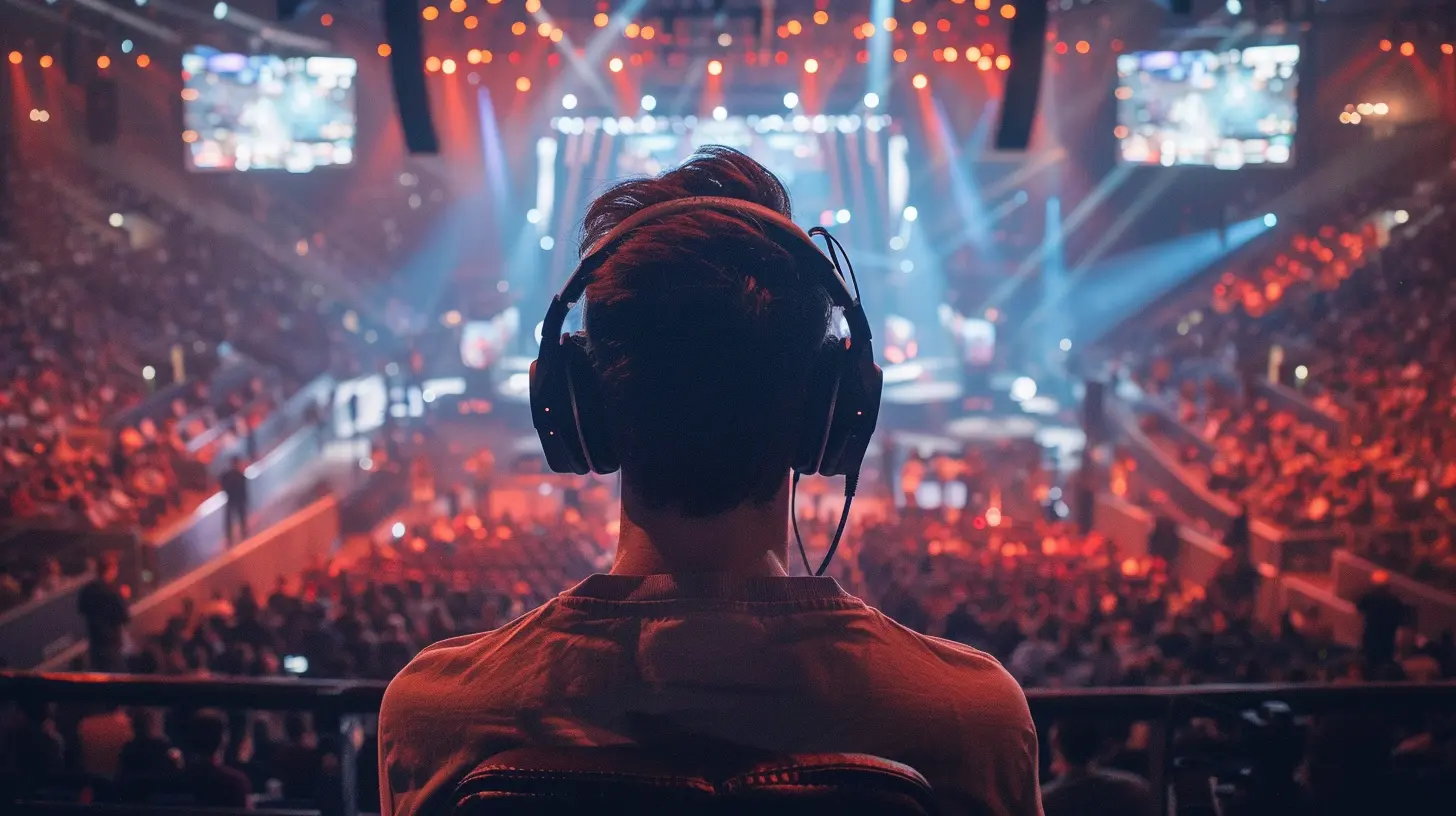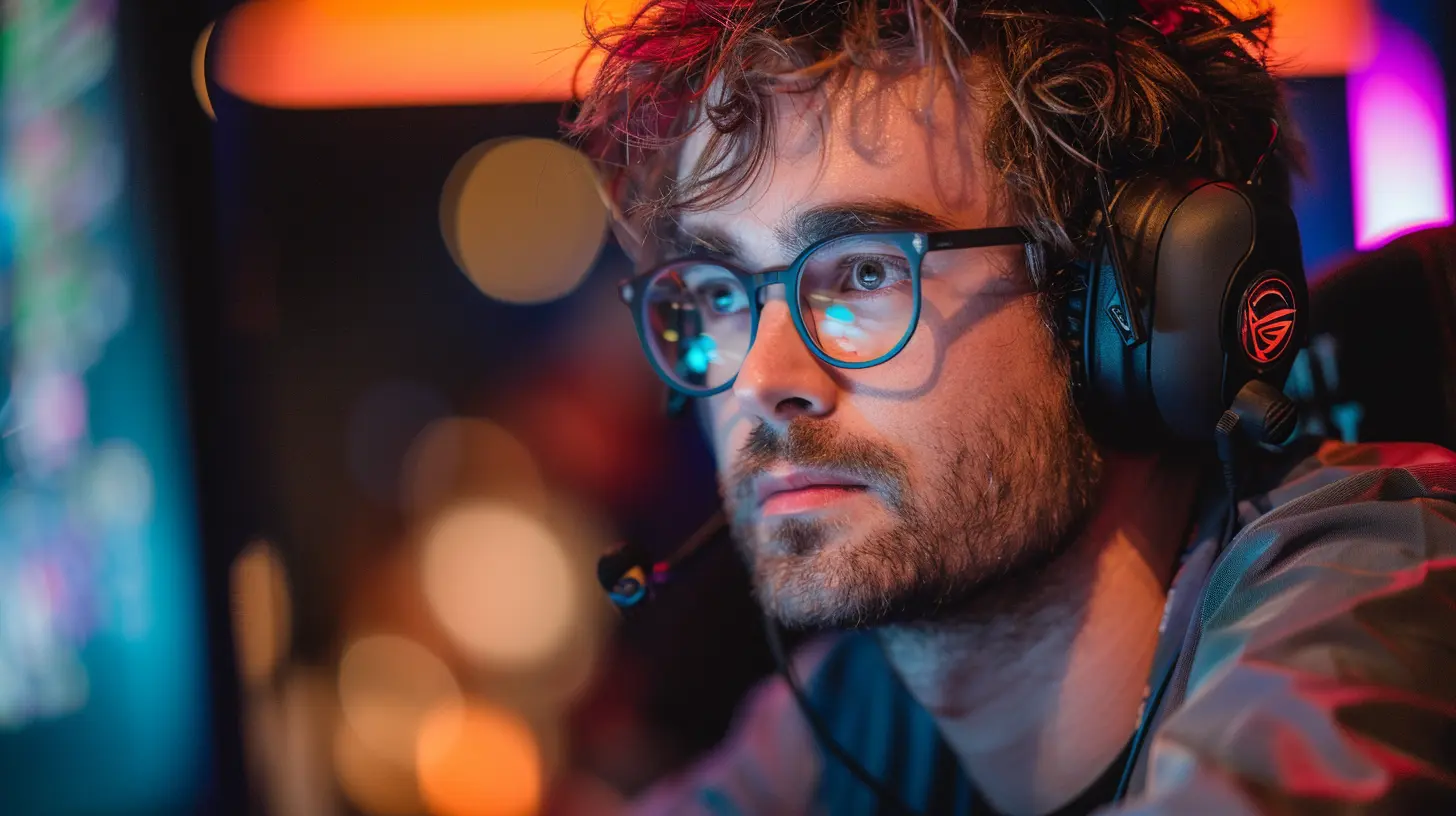What Makes a Great Esports Shoutcaster?
6 September 2025
Esports has become a global phenomenon, with millions of fans tuning in to watch their favorite teams and players battle it out in intense video game competitions. But what truly makes these events come alive? Sure, the gameplay is thrilling, but there's another key player behind the scenes (well, technically in front of the scenes) who makes the experience unforgettable: the shoutcaster.
In case you're unfamiliar with the term, a shoutcaster is essentially the commentator or announcer for esports events. Much like traditional sports commentators, these individuals provide play-by-play commentary, analysis, and even a bit of entertainment to keep audiences engaged. But what separates a good shoutcaster from a great one?
Let's dive in and explore the key elements that define a top-tier esports shoutcaster.
1. Deep Knowledge of the Game
First and foremost, a great esports shoutcaster needs to have a deep understanding of the game they're casting. It's not enough to know the basics or have a casual interest in the game. We're talking an almost encyclopedic knowledge of the mechanics, strategies, and nuances that make the game tick.Think of it like being a chef. You can't just follow a recipe and churn out a masterpiece. You need to understand how each ingredient works, how to balance flavors, and how to improvise when something goes wrong. Similarly, a shoutcaster must grasp every aspect of the game to provide insightful commentary that resonates with both casual fans and hardcore aficionados.
Breaking Down Complex Plays
A great shoutcaster can break down complex plays and strategies in a way that's easy to understand. For example, in games like League of Legends or Dota 2, where team fights can get chaotic quickly, a shoutcaster must be able to recap what happened in a clear and concise manner, all while keeping the audience engaged.Imagine watching a high-intensity play and having no idea what’s going on. Without a knowledgeable shoutcaster, viewers could easily get lost in the action. But when a great shoutcaster is on the mic, they can translate the chaos into a thrilling narrative, helping the audience understand why a specific move was brilliant (or disastrous).
2. Charisma and Energy
Knowledge is important, but let’s be honest, no one wants to listen to a monotone drone, no matter how much they know about the game. A great shoutcaster brings a magnetic personality to the table, complete with charisma and raw energy that can elevate even the most mundane moments of gameplay into something exciting.Maintaining Energy Through Lulls
Esports matches often have moments of downtime—whether it's waiting for a match to start or a lull between intense action. This is where a shoutcaster's charisma really shines. They need to keep the energy up and engage the audience, even when there’s not much happening on-screen.Great shoutcasters are like performers; they know how to keep the crowd entertained, tossing in jokes, banter, or interesting anecdotes to maintain the flow of the broadcast.
Think of it like a rollercoaster: not every part of the ride is a steep drop or a loop, but you need to keep the excitement building even during the slower parts, so the payoff feels even more exhilarating.
3. Adaptability and Quick Thinking
In esports, things can shift in the blink of an eye. A seemingly one-sided match can flip on its head with a single brilliant play. A great shoutcaster needs to be quick on their feet, able to adapt to rapidly changing situations without missing a beat.Reacting in Real-Time
When casting live, there’s no time to think things over or rewind the tape. Shoutcasters need to react in real-time, offering instant analysis while still keeping pace with the game. This is where their quick thinking comes into play.For instance, in a fast-paced game like Overwatch, where team fights happen in seconds, the shoutcaster has to narrate the action, point out key plays, and give context—all in real-time. It's like being a sports commentator and a storyteller rolled into one, with no script to follow.
And it’s not just about reacting to the game. Shoutcasters also need to adapt to technical issues, unexpected interruptions, or even player interviews that don’t go as planned. Their ability to stay calm, collected, and entertaining in the face of the unexpected is what makes them stand out.
4. Team Dynamics and Chemistry
In most professional esports broadcasts, shoutcasters work in pairs or teams, typically consisting of a play-by-play caster and a color commentator. The play-by-play caster focuses on narrating the action as it unfolds, while the color commentator offers analysis, insights, and context to enrich the broadcast.A Balancing Act
The magic happens when the two roles complement each other perfectly. The play-by-play caster brings the hype and excitement, while the color commentator dives into the “why” behind the plays. Think of it like a dance—both shoutcasters need to be in sync, knowing when to speak and when to give space to their partner.This dynamic is crucial because poor chemistry between shoutcasters can lead to awkward pauses, over-talking, or worse, confusing the audience. A great shoutcasting duo feels natural and seamless, bouncing ideas off each other like seasoned comedians finishing each other’s sentences.
5. Engaging the Audience
Another essential trait of a great shoutcaster is the ability to engage the audience. Esports communities are passionate, and a shoutcaster who can tap into that passion will leave an indelible impression.Knowing the Audience
Different esports titles attract different types of audiences. For example, the Counter-Strike fanbase might enjoy more tactical and strategic analysis, whereas a game like Fortnite might attract a younger crowd that appreciates hype and humor.Great shoutcasters understand the community they're speaking to and adjust their style accordingly. They cater to their audience's desires—be it detailed strategy breakdowns, lighthearted banter, or over-the-top hype moments—without alienating casual viewers or hardcore fans.
6. Vocal Control and Clarity
Another vital skill that’s often overlooked in shoutcasting is vocal control. Esports matches can get chaotic fast, and when the action heats up, the last thing you want is a shoutcaster who’s screaming into the microphone, making it impossible to understand what’s happening.Finding the Right Balance
A great shoutcaster knows how to modulate their voice, keeping a clear and controlled tone even during the most intense moments. They can scream and shout without devolving into incoherent noise, ensuring that their excitement is infectious while still providing value through their commentary.Vocal control also involves pacing. A great shoutcaster knows when to slow down and provide thoughtful insight, and when to speed up and match the intensity of the action. It’s this balance that keeps the audience both informed and entertained.
7. A Passion for Esports
Last but certainly not least, a great shoutcaster has an undeniable passion for esports. You can’t fake passion—audiences can spot it a mile away. When a shoutcaster is genuinely invested in the game and the community, it shows in their voice, their energy, and their enthusiasm.Enthusiasm is Contagious
Passion is contagious. A shoutcaster who loves what they do can turn even the most mundane match into an exciting experience. Their enthusiasm rubs off on the audience, making them more invested in the outcome of the game.A great example of this is Toby “TobiWan” Dawson, one of the most iconic Dota 2 casters. His passion for the game is palpable, and when he’s on the mic, you can’t help but feel the excitement too. Whether it’s a small play or a game-winning moment, his enthusiasm elevates the entire experience.
Conclusion
So, what makes a great esports shoutcaster? In short, it's a combination of deep game knowledge, infectious energy, quick thinking, and the ability to connect with both the audience and their co-caster. They’re part commentator, part entertainer, and part analyst, all rolled into one.Shoutcasting is an art form, and when done right, it can turn a good esports event into an unforgettable experience. Whether you’re a budding shoutcaster yourself or just a fan of esports, keep these traits in mind the next time you tune into a tournament—you’ll never listen to a shoutcaster the same way again.
all images in this post were generated using AI tools
Category:
EsportsAuthor:

Michael Robinson
Discussion
rate this article
1 comments
Lindsey Anderson
This article insightfully explores the essential qualities of a great esports shoutcaster, highlighting the need for a deep understanding of the game, strong communication skills, and the ability to engage an audience. Balancing enthusiasm with analysis is crucial, as it enhances the viewing experience and elevates the overall esports community.
September 6, 2025 at 11:43 AM

Michael Robinson
Thank you for your thoughtful comment! I'm glad you found the article insightful—it’s great to see a shared appreciation for the qualities that make shoutcasting impactful in the esports community.


